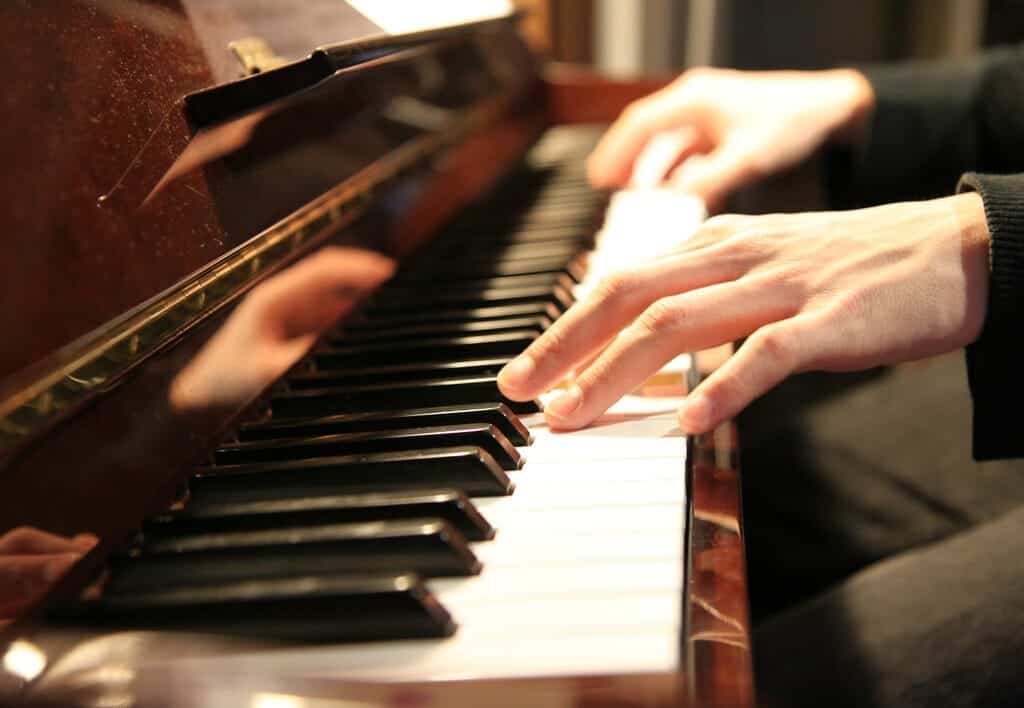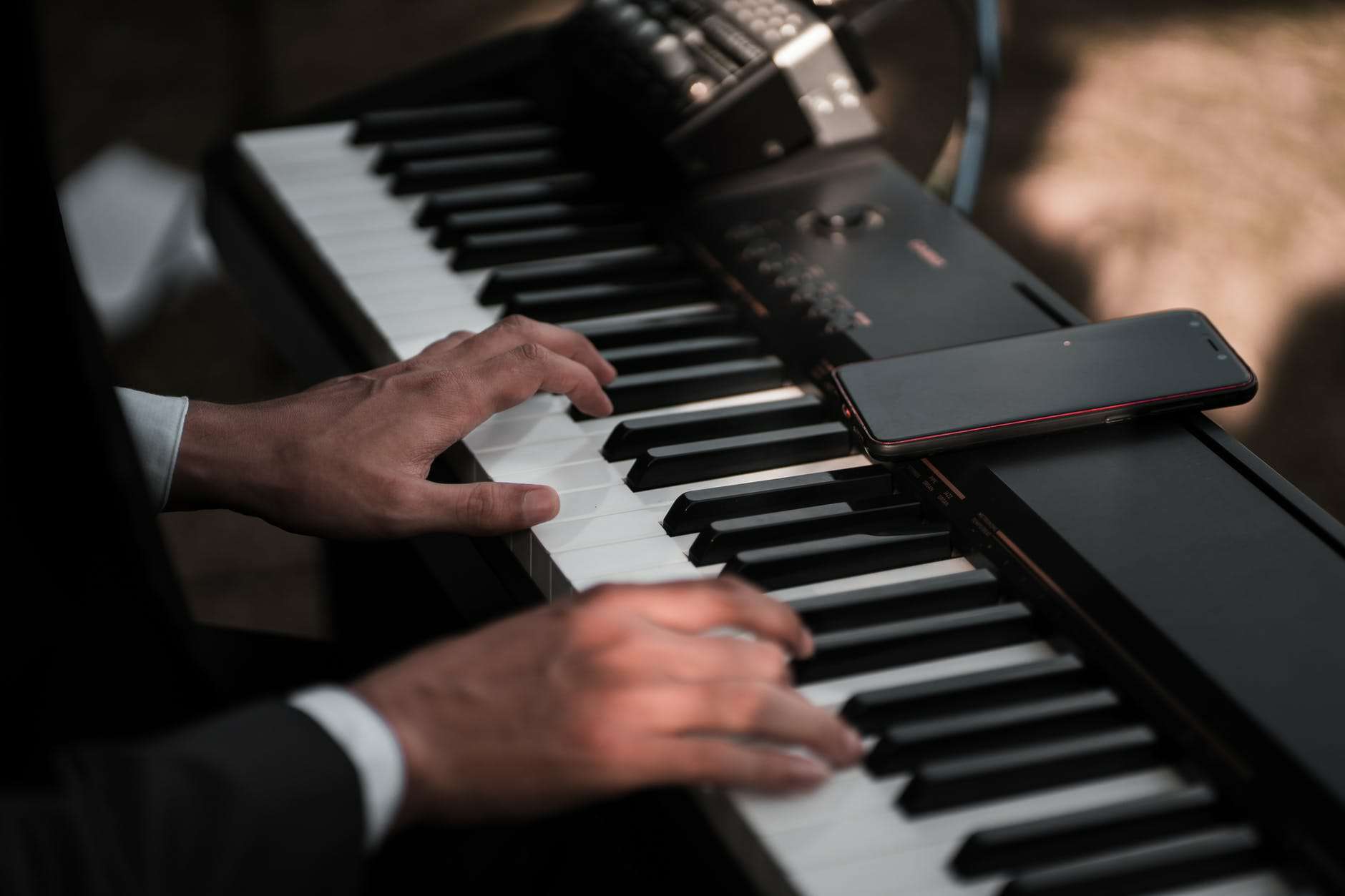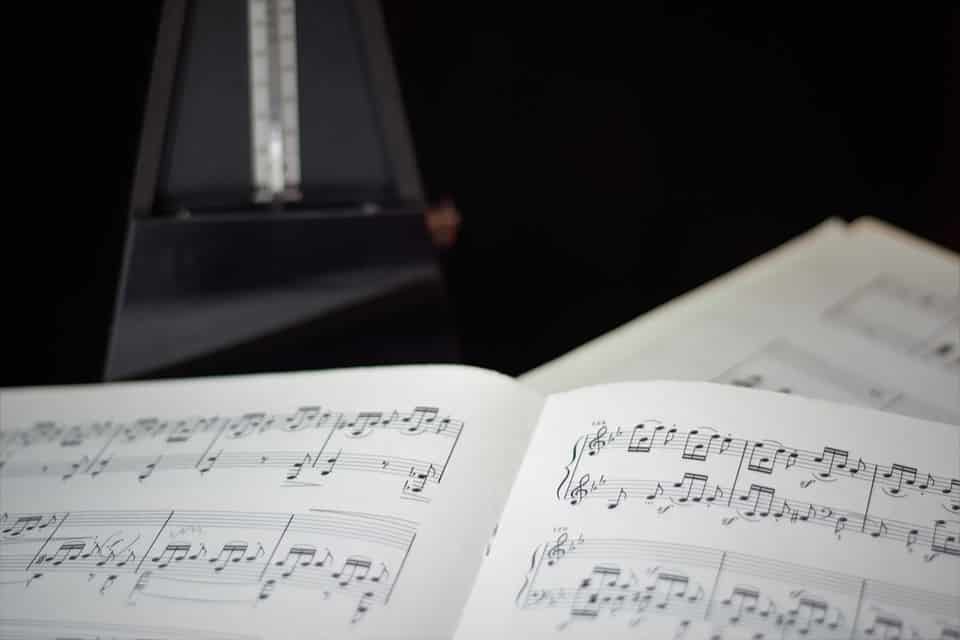It may come as a surprise to lots of people that many famous and successful musicians actually can’t read music. It’s not necessary to read music in order to play the piano. It’s extremely helpful, and I’d advise that anyone wanting to learn the piano also learns to read music, but it’s not a requirement. But how do these musicians do this? How do you play the piano by ear?

Playing piano by ear is not necessarily something you’re born with. Of course, many people are able to play by ear without any training; they seem to have a gift for it. However, it’s absolutely possible to learn how to play by ear if you’ve got a solid grasp of harmonic structure and chords.
Playing by Ear - A Very Quick How-to
I actually began playing the piano by ear. I didn’t learn to read music until much later in my musical life, until I was about 13 or 14. I remember when I was very young, listening to an old CD of Scott Joplin ragtime works, and trying to pick out some of the tunes on the piano. I learnt quite a few pieces in this way.
Now, I never worked on this skill in the way that I should have. What I really should have done is get a solid grasp of music theory. This would have almost certainly made me extremely proficient playing by ear, and given me the ability to pick out any melody or harmonic progression without having to listen to the CD over and over again.
If you want to play by ear, this is the absolute best advice I can give to you. The absolute most important skill you can have when playing the piano by ear is absolute fundamental knowledge of scales, arpeggios, keys, key signatures, time signatures, etc.

Only then will you be able to recognise chord progressions, harmony and melody in any piece you listen to. If you don't do this, it will take you a much longer time than necessary in order to be able to do this. Learning the piano is a long process anyway, and if you're interested in finding out how long, have a look at an article I wrote about how long it takes to learn the piano.
Some things to practice:
- Make sure you know common harmonic progressions. Start with the basics - I, IV, V, I (if you don’t know what I’m talking about, this is a great time to start learning music theory) and progress to more advanced progressions. This is probably the most important step in learning to play music by ear.
- Learn time signatures. A little experiment for you. Listen to this piece. You might be able to pick out the chords, but can you pick out the time signature? I’ll give you a hint; it’s 5/4. Now, if you weren’t able to figure that out yourself, you wouldn’t be able to play along with or accompany a band playing this music. This is why it’s very important to be able to figure out the time signature that you need to play in.
- Practice, practice, practice your scales and arpeggios. I can’t stress this enough. This will help you immensely with chord improvisations, but also with working out melody and harmony of any piece you will need to play.
Of course, many people say that playing music by ear is easier than learning how to read music. But if you need to do all this stuff in order to be an expert at playing by ear, is it really that much easier?
The Benefits of Reading Music
A little off topic; I know this article is about playing by ear, but there is definitely something to be said about learning to read music. You might have already decided you want to play by ear, and that’s fine - there is merit to doing both. In fact, that’s what I’d suggest - learning to do both. That makes you a much more versatile musician, with the ability to play in a wealth of styles and genres.
Reading music gives you the flexibility and the skill to play almost anything; and as I’ve said, it’s not a case of doing one or the other. In many ways, learning to read music can actually help you to play by ear more efficiently. While it’s absolutely a great skill to be able to just play something by hearing it, in my opinion there’s nothing more liberating than being able to sit down in front of a piece of music you’ve never seen before, and just play it.

If you can sight read, and you can read music well, you will be able to play anything.
One thing that's really important to note when you're learning to play the piano by ear is to practice properly. I'd really recommend you read up on effective practice and using a metronome; both articles on this website that I think will help you.
Conclusion
Reading music is a great skill. Playing by ear is a great skill too. I’d recommend becoming good at both. However, if you really want to play piano by ear, you’re going to have to work at it, unless you’re immensely talented. Make sure you have a solid grasp of music theory. Know popular chord progressions inside and out. Know every scale in every key imaginable. This will make playing the piano by ear absolutely effortless.
Until next time; happy practicing!
Jack
